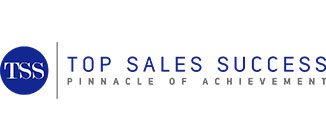ASSEMBLE THE BEST EMPLOYEESWhy Assessments?
- Improve Hiring and Selection – Accurately identify job applicants BEFORE the interview, make scientifically informed judgments and build an organization of A+ employees.
- Increase Sales – Understand yourself to relate more effectively to others. Your sales team will be able to identify observable behaviors and adapt their selling style to the customer’s buying style – improving your closing ratio.
- Improve Customer Service – The moment of truth – when a customer is in contact with one of your employee’s. Your customer service team is in contact with customers more than anyone in your organization so you need to know in advance that your people believe in your organization and care about your customers. Better equip and train your customer support team with the invaluable communication and behavior profiling skills that pay countless dividends.
- Increase Productivity – Identify with precision the strengths and weaknesses of each employee. Create action plans and improvement input that maximizes your organization’s talent.
- Reduce Employee Turnover – The right fit results in better employee retention, job satisfaction and productivity.
- Customize Employee Training – Focused and impactful custom training to improve productivity.
- Model Team Building – Build teams that complement each other. Compatible skills and traits leveraging each individual’s strengths creating a powerful results oriented productive team.

Determine the Efficiency, Performance, and Needs of Your Team.

DISC 360 Degree Report
How Do Others See You? What if you could have an enhanced 360o view of the world? In other words, imagine having the ability to process the collective perceptions of how others see you. Often times, the way we perceive ourselves and the way others perceive us are two very different things. Managers and business leaders often persist in communication and organizational practices believing everyone recognizes their “obvious” intentions, overlooking costly misinterpretations that stem from different behavioral styles. Those challenges have often been unfortunate workplace inefficiencies that were difficult to resolve— until now! Our DISC 360º, Communication Styles and Platinum Rule assessments offer what we term 360o Reports, which pull “observer data” from a user’s colleagues and employees providing that user an informed “self-audit” to eliminate workplace miscommunication and improve client relationships.
The Platinum Rule
THE ULTIMATE GOAL OF THE PLATINUM RULE… is personal chemistry and productive relationships. You do not have to change your personality, ideas, beliefs or values. You do not have to roll over and submit to others. You simply have to understand what drives people and recognize your options for dealing with them. The key objective of this whole concept is understanding your own style, understanding and being able to quickly and accurately identify the style of others, and then adapting so that you treat others the way they want to be treated.
These are powerful life-skills that will serve you well in all your relationships: work, friends, school, spouse, and children.
Each assessment measures a different, core style: behavioral, motivational, thinking, emotional and learning. Used individually or in a variety of combinations, the core assessments offer individuals and organizations alike the opportunity for enhancing self-awareness and boosting professional performance beyond anything previously available within the assessment industry by exploring the whole person. Whether you want to develop more self-aware leaders, assemble top performing teams, improve sales and service results, enhance training initiatives or select top performing employees, the core assessments provide the foundation for dependable human performance answers.
DISC – Identify Behavioral Styles
Most popular assessment and the world’s #1 behavioral profiling tool. DISC provides a highly detailed analysis of each individual’s Natural (i.e. personal/ internal) and Adaptive (i.e. workplace/ external) behavioral styles. A person’s behavior is often the strongest predictor of fit; whether that be within a particular job, as the member of a team or as the leader of an organization. In essence, DISC predicts “How?” a person will behave in a given role or situation. Likewise, it offers the prescriptive lessons necessary to maximize the outcome of any interpersonal or workplace communication.
Motivators – Identify Motivational Styles
The perfect companion assessment to pair with DISC, Motivators measures the seven universal dimensions of motivation that drive each of us: Aesthetic, Economic, Individualistic, Political, Altruistic, Regulatory and Theoretical. Whereas DISC predicts “How?” a person will behave, Motivators answers “Why?” If you’re only using DISC, you’re only scratching the surface of what assessments can offer individuals and organizations.
Hartman Value Profile (HVP) – Identify Thinking Styles
The Hartman Value Profile (HVP) assessment offers the critical third piece to the human puzzle. Based upon Robert S. Hartman’s formal axiology, this unique assessment measures each individual’s problem solving skills and ability to avoid the blind spots associated with situational bias. In essence, the HVP assessment measures, with uncanny accuracy, an individual’s critical thinking, judgment and decision-making.
Emotional Intelligence (EIQ) – Identify Emotional IQ Styles
The Emotional Intelligence (EIQ) assessment helps users understand the correlation between the way they apply their current EIQ and the outcome of their interactions with others. This lends itself to improved decision making, leadership, reading the emotions in others and engaging in a greater number of mutually beneficial workplace outcomes. Here’s the key: EIQ can actually be improved and coached-up over time so it makes an excellent self-improvement assessment.
Learning Styles – Identify Learning Styles
Our fifth and final core assessment, Learning Styles, does just as its name implies: it identifies each individual’s best means for learning and retaining new information. Some people like to process information through text, while others need visual support and images. Some learners best assimilate information alone, while others prefer to work in groups. There are those who can grasp information intuitively, while others prefer to follow a strong sequential path. In short, understanding learning styles offers the key to maximizing an organization’s training efficiencies, enlightening its management teams and even assembling top performing teams.
Sales IQ PLUS
This award-winning skills test measures each professional understands of the sales strategies required to successfully win, retain and grow clients. With 48 questions selected at random, from a pool of over 100, Sales IQ Plus is never the same test twice! Re-administer it to continually identify and track the strengths, struggles and blind spots within any organization’s sales team. Jointly developed by best-selling sales authorities, Jeffrey Gitomer (The Sales Bible), Jim Cathcart (Relationship Selling) and Dr. Tony Alessandra (The Platinum Rule for DISC Sales Mastery), Sales IQ Plus plays an integral role in the sales training successes of organizations around the world. Measures all 8 primary sales competencies: Connecting, Solving, Targeting, Preparing, Assessing, Assuring, Confirming and Managing.
Executive Summary Development
- Your Coaching and Development Pathway to Top Performance
- “Discover Your Core Performance Strengths and Blockers and View the Specific Steps that will Optimize Your Potential”
- This is a Four Part MULTI-DIMENSIONAL DEVELOPMENTAL REPORT designed to guide you toward the goal of sustained workplace IMPROVEMENT…NOT PERFECTION. It relies upon solid performance science to measure the factors that actually create success in the modern business world. The developmental focus of this report include the specific steps to enable you to optimize your potential!
- Human performance is NOT a single measure. It unfolds as three powerful performance multipliers operate upon your knowledge and experience.
- Each Executive Summary report provides users actual answers and specific recommendations, calibrated to one of FOUR different job categories…
- Leadership and Management
- Sales and Marketing
- Customer Service
- General Administrative
- Executive Summary General Summary
- Sample Executive Summary Development Report
DISC Workplace Strengths:
- The Workplace Strengths report is a simple and easy to use, low-cost instrument requiring just 15 minutes to complete a reliable first step screening answer for any hiring and selection process. This DISC & Hartman based tool measures candidate suitability in broad brush strokes – providing either a SATISFACTORY or CAUTIONARY score. Workplace Strengths establishes each broad score by addressing “Four Universal Work Ethic Requirements” needed for strong performance in virtually all positions:
- Can this person work effectively with other people?
- Can this person remain engaged and effective when under stress and pressure?
- Can this person prioritize their activities?
- Will this person accept accountability for their own actions?
- Workplace Strengths Sample Report
Performance Gap Indicator
- The Performance Gap Indicator (PGI) isn’t just a company culture assessment! PGI combines the anonymous individual employee responses and analyzes the results across all five Non-Financial Key Performance Indicators (NF-KPIs) for a much more multifaceted and revealing look at an organization’s strengths and performance gaps. Measures: Culture/Operations/Leadership/Training/Service.
- The PGI features 2 available reporting options.
- PGI Diagnostic – the comprehensive benchmark assessment to identify and measure company-wide performance gaps
- PGI Pulse* – the follow up assessment to quantify performance improvement, confirm ROI, and implement regular interval reporting
- Performance Gap Indicator Sample report


